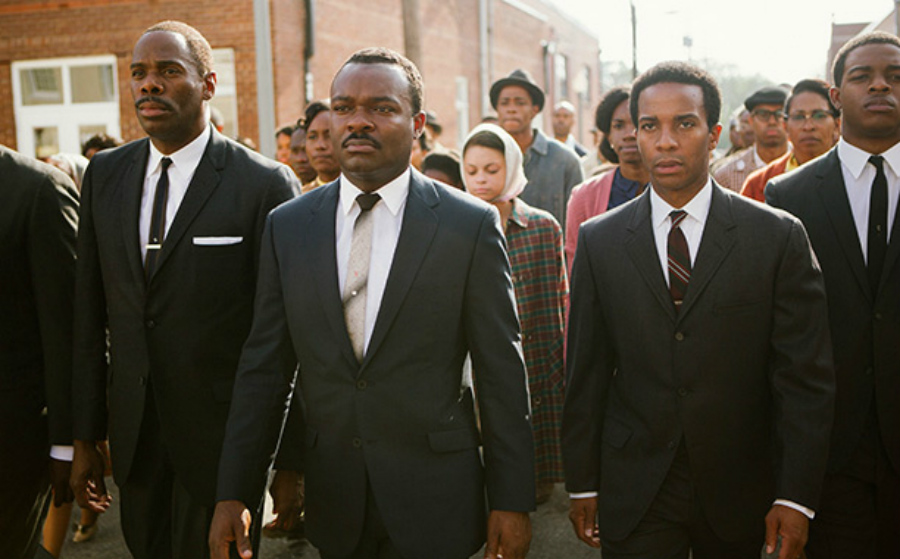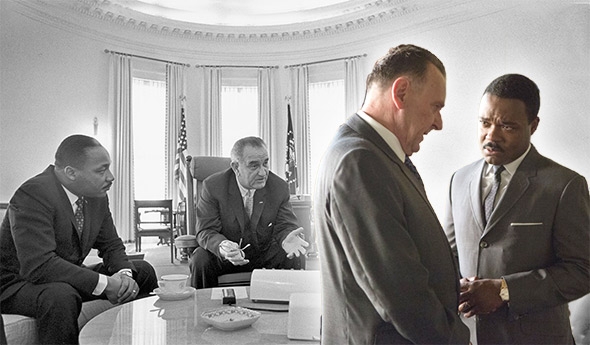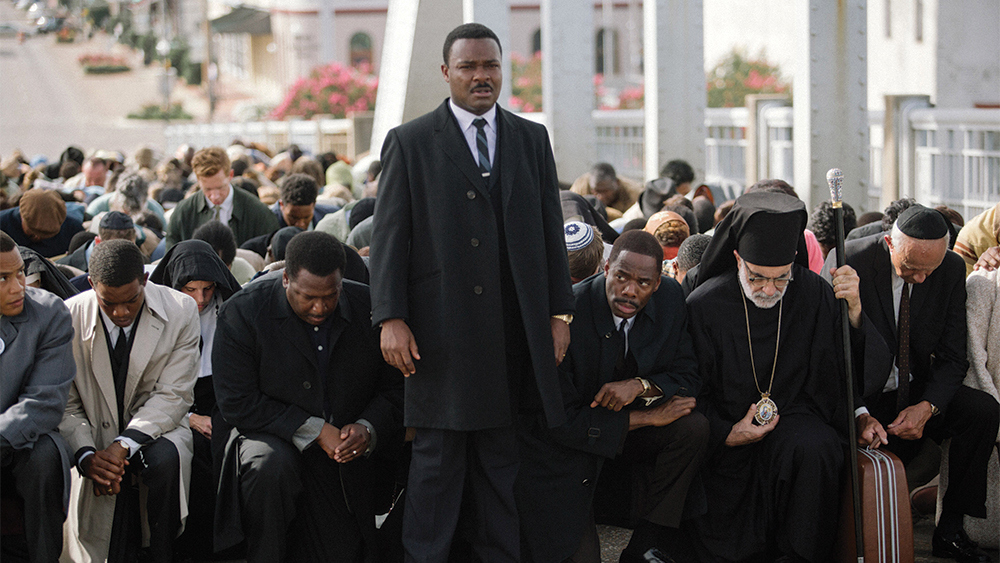The film, Selma, about the 1965 voting rights marches in Alabama led by Dr. Martin Luther King Jr. (MLK), has rightly portrayed the then-President Lyndon Baines Johnson (LBJ) as an obstacle to the civil rights movement. But this has spawned controversy amongst white American commentators.
A presidential legacy, it seems, is a very touchy subject – at least, for former aides and interested white American historians.
Some have said the film negatively casts that president, who died 41 years ago, as reluctantly standing by while activists marched and Congress passed the landmark Voting Rights Act of 1965.
“What’s wrong with Hollywood?” laments Joseph A Califano Jr., who served as Johnson’s top aide for domestic affairs.
Drawing particular fire at a scene where Johnson asks the director of the FBI at the time, J. Edgar Hoover, to discredit King. The president also is shown green lighting a decision to send King a tape recording of the civil rights leader engaging in an extramarital affair.

Later, the movie shows how MLK missed the first Selma march because he was busy trying to repair his marriage, after his wife had listened to the said tape.
Many white sympathizers of LBJ claim that while they agree that the FBI did monitor King at the time – and did send a threatening letter to his house that hints at an audiotape – they refuse to accept where the film takes ‘artistic license’ with both the timeline and LBJ’s involvement.
Writing for Politico, Updegrove says films based on true events often massage the truth in order to create a better narrative, but historians should step in when that narrative doesn’t represent the spirit of what actually happened.
Couldn’t that be said of every single film that the U.S. makes about Black people in America and about Africans?
When it comes to Selma, he thinks the filmmakers misrepresented the relationship between King and LBJ. “In truth, the partnership between LBJ and MLK on civil rights is one of the most productive and consequential in American history,” he writes.
We disagree. Selma got it right – President Lyndon Baines Johnson was as an obstacle to the civil rights movement. No less!
Breitbart’s Roger Stone and Phillip Nelson have called Updegrove out and charged that he is sanitizing the relationship between MLK and LBJ.
Stone and Nelson say, Johnson was a life-long segregationist who worked against the civil rights movement for years. It was only when the president found himself in the Oval Office that he saw the benefit of supporting the civil rights agenda. No more!
“Johnson’s embrace of civil rights is apparently not based on a moral principle; even when LBJ does the right thing, he does it for self-interest, as part of his plan to create a grand legacy for himself,” they write.

Within this context of the historical debate, Vox’s Matthew Yglesias writes that the criticism of Johnson’s portrayal goes beyond the scrutiny that biopics like Selma normally receive. Instead, he says, it seems that the criticism comes from the fact that the film doesn’t make LBJ, a white man, the hero of the Voting Rights Act.
That is in essence white America’s problem. That so many of them cannot enjoy a Black film without jumping to shoot it down as negative towards a white man.
He disagrees with the idea that Johnson is negatively portrayed in the film. Instead, he says, King and his associates are portrayed as the key actors, while the president is on the sideline. This is a problem, obviously, for some white viewers. But that is the truth!
“The idea that a film should be ruled out for having the temerity to focus on black people’s agency in securing their own liberation is completely absurd,” Yglesias writes. “We’ve had too few such films in American history, and everyone could stand to watch some more.”

But while most critics see Johnson as the victim in Selma’s version of the story, Josh Zeitz writes for Politico that Selma is equally damaging to King. Even Yglesias misses the mark, he says.
“The controversy over Selma should not be reduced to a debate about whether black activists exercised political agency,” he writes. “Of course they did. The deeper problem is that the movie doesn’t always get its portrayal of black activists right.”
Zeitz says that the film is “oddly patronising” in the way it deals with black student activists. Often, he says, they are seen as well-meaning hotheads often working against the movement. Instead, the reality is that King co-operated with student groups because they were unconventional, not in spite of that.










I would hope that Ava DV would not make a white man the hero of the Voting Rights Act!
Selma. It’s a Hollywood movie. Don’t think it’s going to be all that subversive. So whatever you get out of it, just know that it already has that stamp of white approval. I prefer to read a book about the march. I’d get more out of the pages than I would a film.
White people need to learn that all their so-called heroes like LBJ and Lincoln are not civil rights advocates at all. They are just as racist. They only preach civil rights when it can benefit them.
Why can’t black people and white people in the U.S. agree on anything that is said about race?
The irony is that Dr. Martin Luther King Jr. went to all that trouble to secure voting rights for blacks and they have just as swiftly been taken away with felon disenfranchisement and voter ID laws, not to mention other sources of oppression. I think it’s great there’s a movie like this coming out of Hollywood but why don’t all the black people who want to cheer for the movie also do something to get back all those voting rights that the movie was all about?
Yep the relationship between King and LBJ was so great, just like every relationship between a black man and a white man in the 1960s. It was so great that King was assassinated and LBJ became president. Go figure.
A Hollywood movie not representing what actually happened? No that doesn’t sound like Hollywood at all!